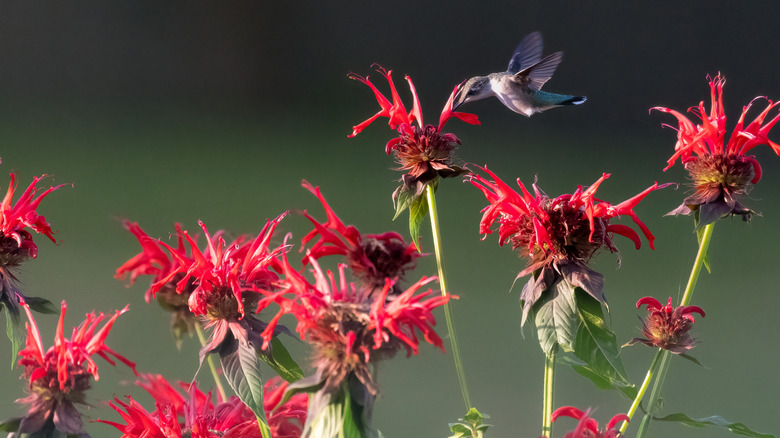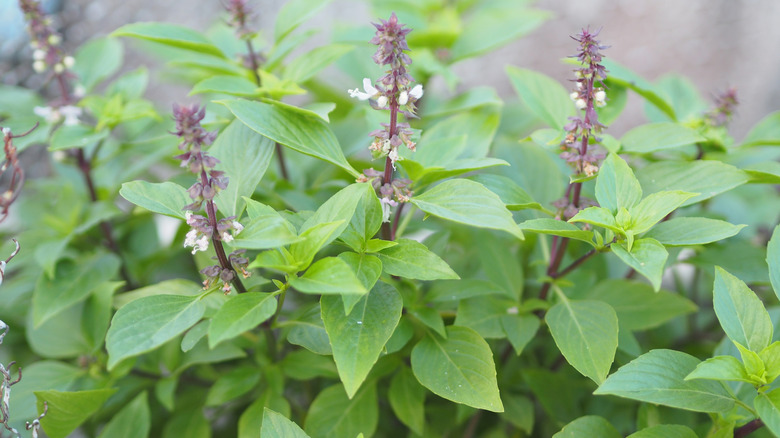The Herb Garden Trick Some Gardeners Swear By To Easily Attract More Hummingbirds
You might enjoy having flying visitors stop by your outdoor spaces, but assume that you need to add some of their favorite plants, such as bee balm and trumpet honeysuckle, to attract more hummingbirds to your garden. A surprising fact is that your herb garden may already be up for the job. The trick is to let your herbs flower instead of snipping off the blooms. The tiny flowers that herbs like mint, basil, and oregano feature are filled with the sweet nectar that hummingbirds love. Leaving them intact helps entice these whizzing birds to spend more time lingering in your garden.
When growing herbs, many gardeners regularly remove the plants' flowers, a process called pinching, to encourage more growth and robust flavor. The flowering herbs can be an important food source for hummingbirds, as well as bees and other pollinators. Leaving them intact is a simple way you can invite these birds into your garden. You'll create a flourishing pollinator garden, all without having to rely on additional plants. Even a small patch of herbs may make a difference, and you'll love watching hummingbirds' antics as they zip from flower to flower. Here's how to make your herb garden friendly for the hummers.
Growing flowering herbs that attract hummingbirds
If you want to turn your yard into a hummingbird feeding ground, plant a variety of nectar-rich herbs such as pineapple sage, catmint, catnip, basil and mint. Make strategic choices in how you plant your herbs. Plant a variety of these herbs, and vary where you plant them, dividing them among containers and garden beds. While planting, add height with hanging baskets or elevated plant stands if possible. Hummers will flit to plants at different heights, and maximizing your vertical space could allow you to take full advantage of a smaller area. In addition, if you have existing hummingbird feeders, try planting your herbs near them to draw in hummers as they feed. Grouping the same species of herbs together can help catch the attention of passing hummingbirds and increase the chances of repeat visitors.
In case you still want to use your herbs in the kitchen, consider saving this trick till the end of the season. Once you've harvested what you need, stop pinching the flowers and let them grow. Herbs like basil will have a bitter taste once they begin flowering, so if you're growing them for flavor, harvest right before the blooms appear. Then, the herbs can continue flowering to offer a feast for all of the nearby pollinators. It's the best of both worlds: you get tasty herbs for your meals while still feeding the hummingbirds.

